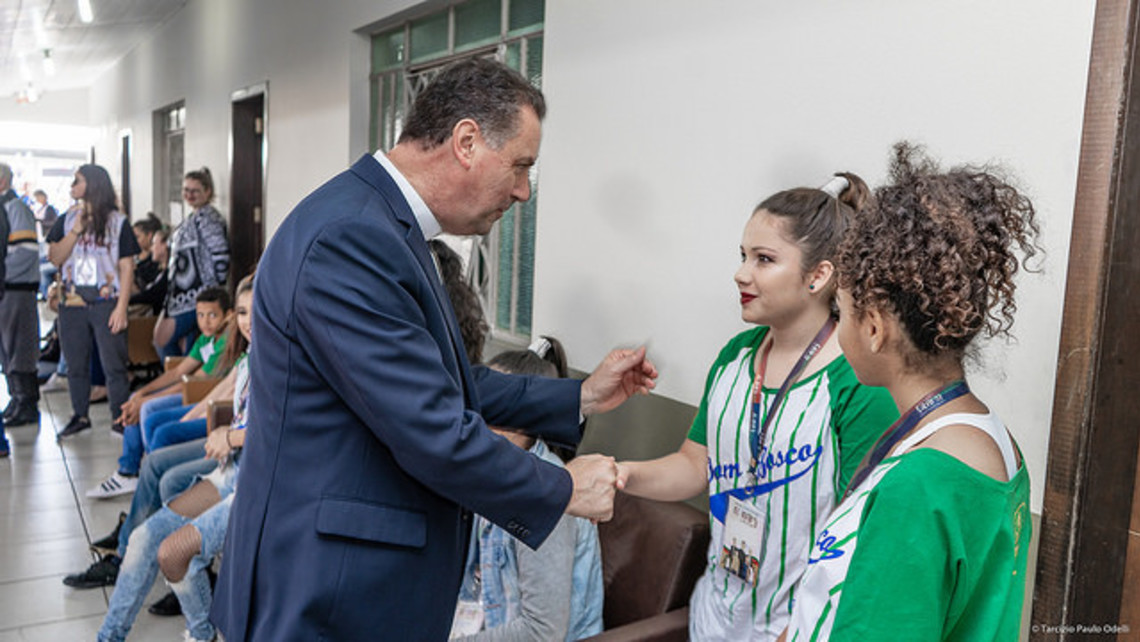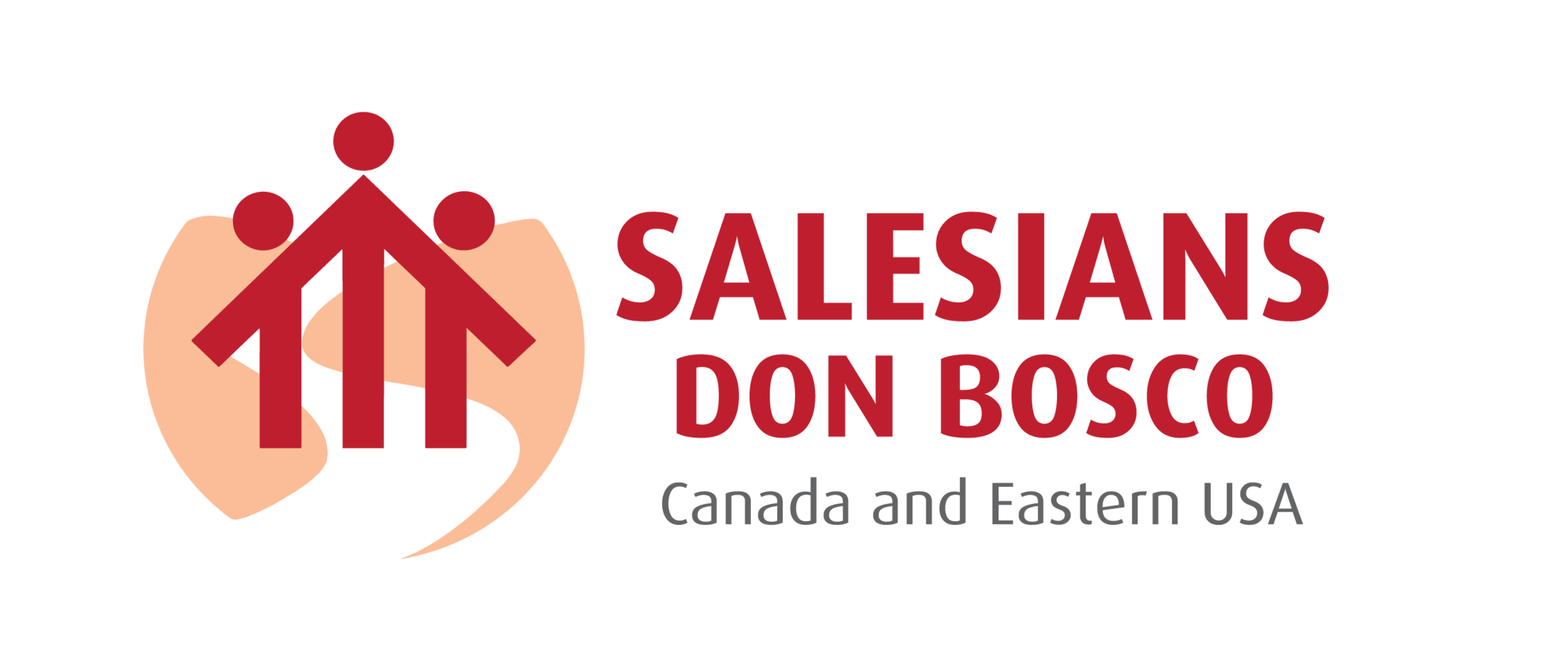
By Fr. Angel Fernandez Artime
The great, striking message of Christmas, destined to change the face of the earth and to fill it with joy, is by all appearances insignificant: a newborn baby lying in a manger. We, too, through so many small and gentle signs, in so many small and forgotten places, announce God every day.
“What should I do?” Don Bosco asked Father Cafasso.
“Come with me and see!” responded his friend and teacher.
And so Don Bosco met the young men in jail. That experience upset him very much. “I said to myself: these young men ought to find a friend on the outside who will care for them, assist them, teach them, and take them to church on holy days.” He brought them little gifts and good thoughts, and he sought to make them reflect. They promised to act better, but when he returned everything was just as it had been before. One time Don Bosco broke down in tears.
“Why is that priest crying?” one of the young prisoners asked.
“Because he loves us. My mom would cry, too, if she saw me in here.”
This was Don Bosco’s heart.
For those who had no family, who felt all alone in the world, who had lost the affection of a friend, or who had never known love and who always felt rejected, coming into contact with Don Bosco’s fatherly affection, Mama Margaret’s maternal love, and the fraternal affection of the Oratory community was to revive and to live – truly live – for the first time in their life. The young boys and men did not come to seek out a priest; they came looking for a father, a brother, and a friend. They sought a profoundly human presence, one that was good and generous, with inexhaustible patience that allowed him to put himself at the service of the one newly arrived, no matter what hour it might be.
Father Felix Reviglio testified: “He allowed us to be continually at his side – so much so that barely had he finished his frugal lunch or dinner than the young would bound into his little refectory and surround him. Despite the annoyance which we must have given him, he took the effusion of our gratitude with all graciousness. Then I, perhaps because I was the neediest for his affection, was able, more than once, to crouch under the table to rest my head on his knees.”
And Father Paul Albera: “Don Bosco used to educate through love, by drawing us to himself, winning us over and transforming us. All of us were enveloped in an atmosphere of contentment and happiness, by which any pain, sadness, or melancholy was immediately banished. Everything in him held a powerful attraction for us: his penetrating gaze, which was sometimes more efficacious than a sermon; a simple movement of his head; the smile that constantly graced his lips – always new and changing, while at the same time, always calm and peaceful; the movement of his lips when he wanted to speak without using words; his very words themselves, cadenced in one way rather than another; his deportment and his light and confident gait. All these things worked on our youthful hearts in the manner of a magnet from which we could not detach ourselves; and, even if we could have, we would not have done so for all the gold in the world, so very happy were we with this his very singular ascendancy over us, which was most natural to him, without study or effort of any kind.”
Don Bosco’s textbook on pedagogy was his life itself.
Educators are not to be “policemen”: they are fathers and mothers, brothers and sisters, friends who teach the young to think, reflect, and evaluate. The key to all this is being present in the midst of the young. In Don Bosco’s mind, education is handed down through personal contact, almost as an exchange of energies. For as long as he was able, Don Bosco used to leave everything aside so as to be present in the courtyard with his boys and young men. This was simply his way of living the Eucharist: “Until my very last breath, everything will be for you.”
During the Synod on the Young, at which I participated, the words of the young people reawakened us. They politely asked us to be more courageous in witnessing with our life what we proclaim and what we truly believe. They need adults, and not only church people, who will be witnesses to us because there is a dearth of paternal and maternal figures in the world.
We need to continue to respond, and not only in our parishes, schools, oratories, youth centers, and shelters for street kids. The vision is much broader than that: in these places, which are familiar and Salesian, true and authentic, mature and healthy, motherhood and fatherhood can take place. At times an educator is a friend or a brother or sister for the young, but he or she also needs to be a true mother or father, for this is one of the greatest gifts that we must continue to give. This is the transmission of life’s wisdom.
On Christmas Day, we will celebrate the miraculous revelation of the Father’s nature, with which Christ is in complete union. Jesus is God, and He shows this even if His incarnate Person is that of a baby. Never before in history had anything like this happened – God with the face of a baby. At the center of our Faith, there is a true tenderness toward the little, the simple, the downtrodden, and not some “cold logic.”
Our young people ought to hear us say that we love them and want to travel with them along life’s journey and their faith journey. Our young people ought to feel that our presence among them is an affectionate and efficacious one. They ought to feel that we want to share with them the best of what we have: Jesus Christ, the Lord, and not that we want to direct their lives or impose on them how they must live. They ought to feel that we are here for them and, if they allow us, to share their happiness and their hopes, their joys, their sufferings and tears, and their confusion, or their search for meaning, their vocation, and their present and their future.
How can we demonstrate that God exists?
A little child asked his mother: “Do you think God exists?”
“Yes.”
“What is He like?”
The woman drew her child close to her, hugged him tight, and said, “God is like this.”
“I understand,” said the child.
The young must feel that we are whispering God to them. Perhaps we will not be able to reason out extraordinary orthodoxy or orthopraxis, but they must feel through our little mediations that Jesus loves them and always welcomes them.
Then, just like Don Bosco in his last Masses in the Basilica of the Sacred Heart, we will understand that it was all worth it.






